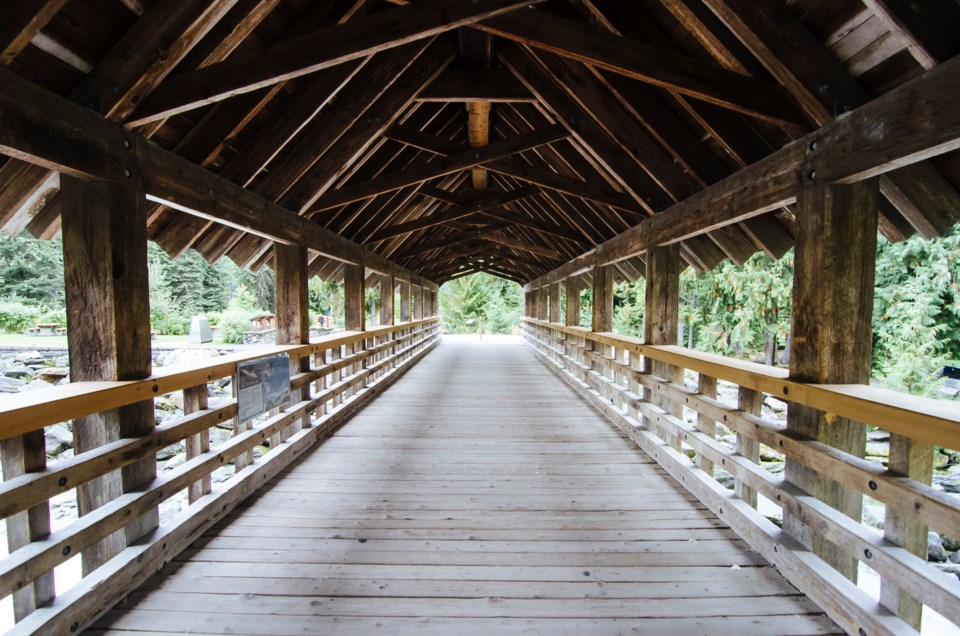“So, how long have you lived here?”
It’s an age-old question that gets asked time and again here in Whistler, where the number of seasons under your ski boots is as much a badge of honour, if not more, than the black diamond runs you’ve conquered.
A loaded question if ever there was one, it’s a quick way of measuring one’s localness versus another, which becomes all the more crucial in a tourism destination that welcomes a fresh batch of newbies to town with every ski season.
That same transience means that Whistler has a short memory, even by the standards of a community that didn’t officially incorporate until 1975. The seasonal nature of our town can feel like spinning on a hamster wheel at times, something that became readily apparent to me as a reporter when I realized how many of the same events and issues, big and small, I was covering on an annual basis.
Some of that is simply inherent to the reality of a community with a population makeup that is constantly in flux. Of course, we can’t expect newcomers to be aware of, say, the proper Bear Smart practices, so we understandably have to educate and re-educate every spring.
But I would posit there’s something else at play that helps speak to Whistler’s short memory: the luxury of distraction. Having reported in this town for a decade now, I’ve come to learn that, as a general rule of thumb, Whistlerites mostly fall into two camps: the passionate, engaged bunch who are up to speed on virtually every happening in town; and the blissfully unaware who typically don’t care about a new development until it impacts them directly.
Often, this dividing line is drawn along demographics, which, again, makes sense when you consider the young adults who come here for a season or two don’t have the same level of investment as someone who has set down roots and built a life here.
They say ignorance is bliss, and I believe many Whistlerites have taken that old adage to heart—and why wouldn’t they when you’ve got as many compelling distractions as we have surrounding us?
But, to trot out another well-used aphorism: “Those who cannot remember the past are condemned to repeat it.” Given the number of complex challenges that have persisted here for as long as we’ve been a ski resort—say it with me, folks: housing, affordability and staffing—we would do well to try to extend our collective memory as a community.
This becomes an even harder task when we continue to lose the kind of institutional knowledge that can only be gained through years of lived experience. While hard data on this is tough to come by, anecdotally, it sure seems as if the resort has lost and continues to lose a not-insignificant number of long-time locals, with the pandemic and fast-rising cost of living proving to be the final straw for many.
It’s a troubling trend that makes events like this month’s Connect Whistler even more crucial. Formerly known as Welcome Week, this week-long slate of social events and information sessions organized by the Whistler Community Services Society gets newcomers acquainted with life in their adopted home and the resources available to them. Looking over this year’s schedule, it was encouraging to see just how deeply involved the team from Whistler’s award-winning First Nations museum, the Squamish Lil’wat Cultural Centre (SLCC), were. It was also heartening to see Whistler Blackcomb hold its own orientation events for new staff this winter at the SLCC, which seems to be developing into a popular hub for local organizations and an essential place for learning. I can’t think of a better introduction to the community, and, by extension, Canada.
Life in Whistler didn’t begin when the ski lifts started chugging, nor did it begin when the first European settlers set foot in the area, and if we as a community are sometimes guilty of having a short memory, perhaps it’s the original inhabitants of this place that can shake us out of our collective amnesia. The first example that comes to mind is all the talk of how “unprecedented” the coronavirus was for our society and our community, when, in fact, for Nations like the Lil’wat and Squamish, the memories of the devastation wrought by a widespread epidemic do not sit in some distant past.




